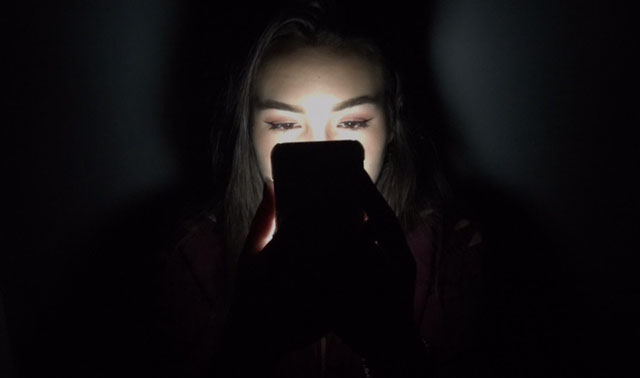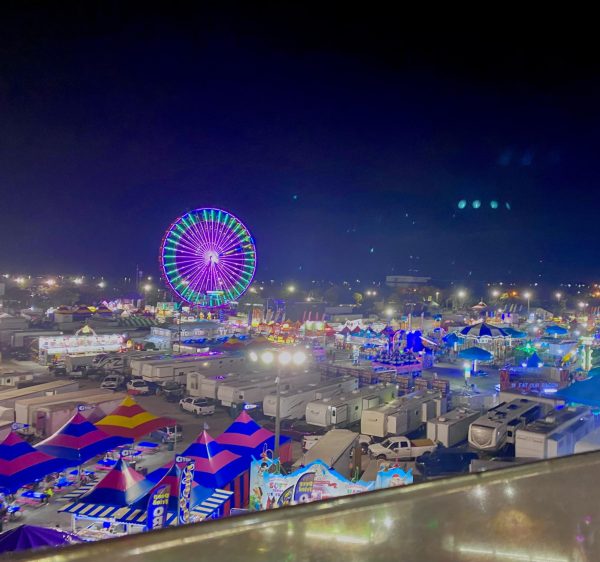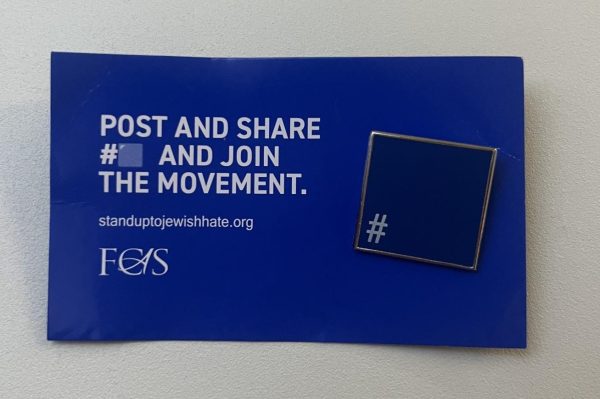Can’t Sleep? Blame Your Phone
February 23, 2017
As I’m getting ready to go to bed, I lay my phone down on my night side table and turn off the lights. I fluff my pillows and bury my body in thick blankets. I lay there for a few minutes before closing my eyes, just staring at the ceiling. From the corner of my eye, I see a beam of light. My phone is gleaming in the dark as if it’s yelling for my attention, and as I do every time, I fall in its trap, temptation getting the better of me. So there I lay, with my phone’s light shinning in my eyes, and I’m lost in a trance. Nothing keeps my hands off of my phone until I look at the time and realize I have four hours left of sleep before school.
One of the most addicting things in our world today is technology, especially our phones and computers. Sometimes, technology is completely essential. We use technology at work and at home. According to Pewresearch.org, “Overall, 84% of U.S. households own a computer, and 73% of U.S. households have a computer with a broadband connection to the internet.”
Absolutely no one can deny that it is extremely useful to have technology at your fingertips, but to what extent does technology become so addicting and time-consuming that it starts to disrupt your sleeping schedule?
“When I’m using my phone at night I don’t even realize what time it is,” said senior Victoria Santacrose. “It’s like time slips away from me. One minute it’s 10 p.m. and then I check the time again and it’s 2 a.m.”
People fail to realize that even though phones have so many fascinating features, they can be completely disruptive and harmful to people who use them when they’re supposed to be sleeping. And they can really mess up the way you carry on with your daily activities.
Many people wouldn’t imagine just how using technology at night can have drastic changes in your sleeping habits. If the amount of technology- whether you use a cell phone or laptop- isn’t controlled or at least reduced, it can lead to sleeping disorders, according to sleep.org.
“The blue light emitted by screens on cellphones, computer, tablets and televisions restrain the production of melatonin, the hormone that controls your sleep/wake cycle or circadian rhythm,” claims the National Sleep Foundation.
Aside from the bright light of a phone screen or computer keeping you wide awake, it actually has enough power to stop you from having a consistent and steady sleeping schedule.
“When I don’t get enough sleep and go to school the next day everything just feels like extra work,” said senior Lauren Martinez. “Since I’m too tired to pay attention, I have to study harder and go over exactly what we did in class on my own.”
Most importantly, sleep is vital for students. Sleep helps you perform to your fullest potential at school. That’s why teachers will always tell you to get a good night’s sleep before a huge exam the next day. Apparently they weren’t wrong because according to Dreamstudies.org, “60% of adolescents and teens use mobile devices after ‘lights out’. The use of mobile devices after lights out are related to many sleep problems, including: short sleep duration, excessive daytime sleepiness, and insomnia symptoms.”
Throughout the day, your sharpness is dulled and this causes issues with schooling and work. The two most important things that you need to prosper are at risk when you use your phone at night.
“I work as an aftercare counselor,” said senior Danielle Hoxter. “When I’m tired at work it makes me cranky and it gets really hard to keep up with the kids. Not having energy when I need to be alert makes it difficult to deal with them.”
With technology playing a huge factor in teenagers’ developing sleep disorders, we need to be aware of how much time we use them. High school students especially are at a point in life when attention spans and alertness affect their future. Don’t be like The Great Gatsby. Instead of reaching for the light beaming at you in the dark, resist the green- and in your case blue- light when you should be sleeping.












